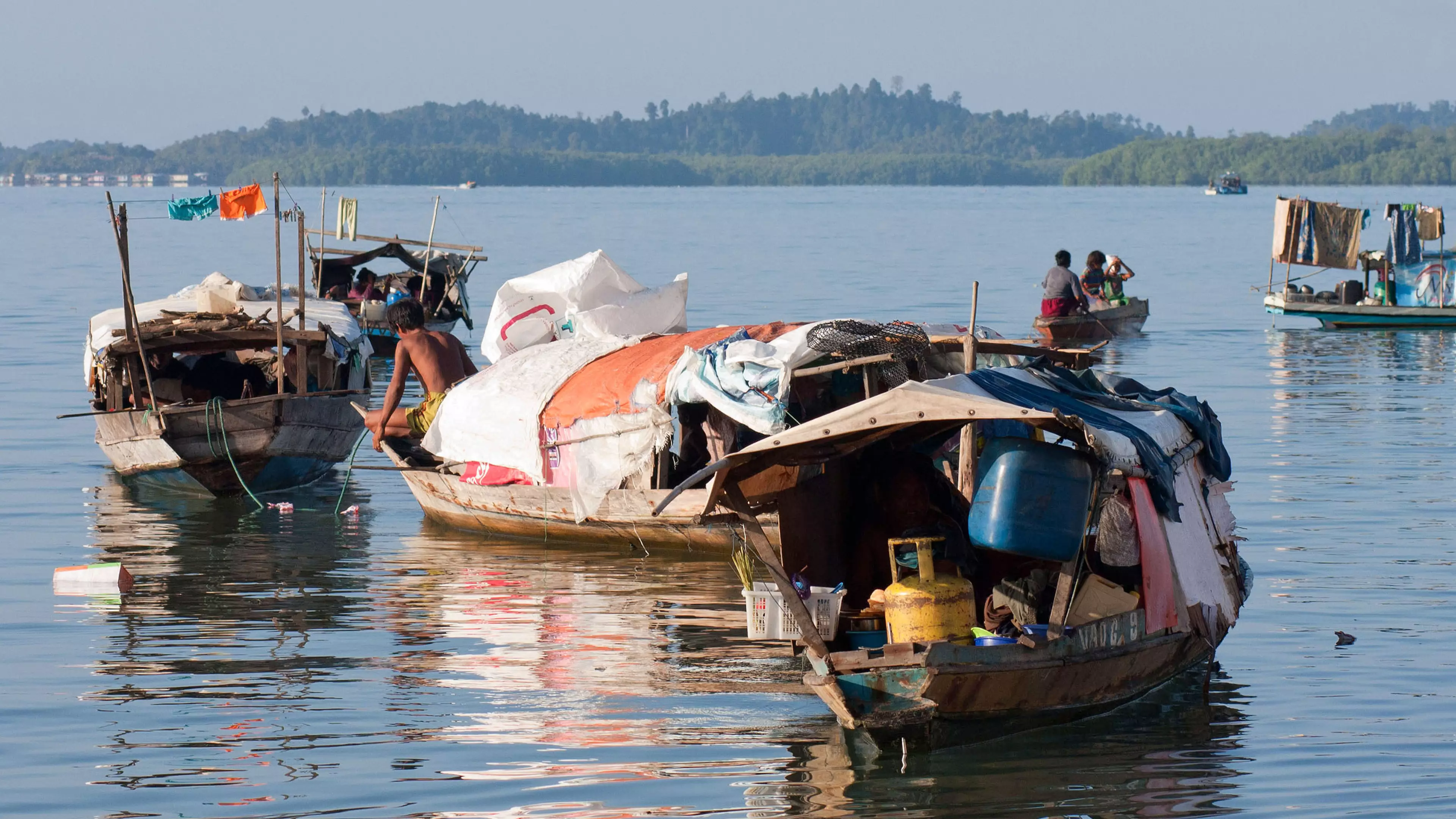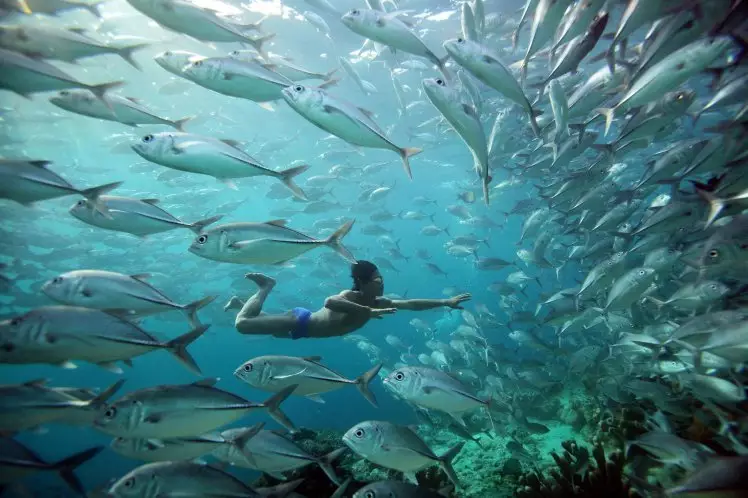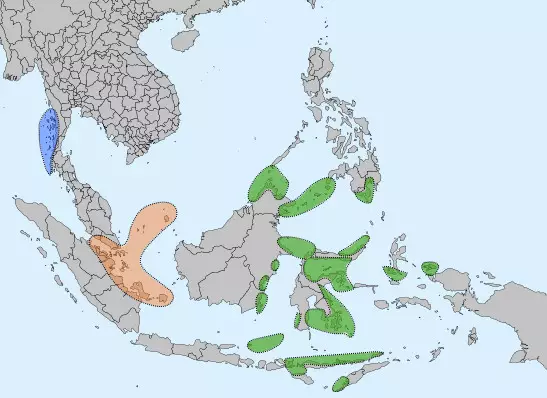
An Indonesian tribe are being described as 'fish people' after scientists discovered that they have huge spleens to help them dive to enormous depths without oxygen.
The Bajau tribe, who live in Indonesia and other island nations such as the Philippines, are thought to have evolved the extra large spleens over more than a millennium.
Members of the tribe regularly free dive to depths of over 70 metres using only weights and wooden goggles.
Researchers from the University of Cambridge and the University of California, Berkeley have been studying the effects of the lifestyle of the Bajau people on their physiology.
Advert
Known as 'sea nomads', the Bajau have spleens that are twice as big as those of their neighbours, the land-based Saluan people, which aids them as they dive for food in the ocean around Indonesia.
The ability to dive deeper and for long periods of time greatly increases their success as hunters and, over a prolonged period of time, results in genetic adaptation that favours a larger spleen.
Spleens are vital to diving as they enact the 'survival mode' that kicks in when humans are diving in water. The spleen sends oxygenated red blood cells around the body as the dive continues, allowing for the diver to hold their breath for a longer duration.

"There's not a lot of information out there about human spleens in terms of physiology and genetics, but we know that deep diving seals, like the Weddell seal, have disproportionately large spleens," said Melissa Ilardo of Cambridge University, the lead scientist on the study.
Advert
"I thought that if selection acted on the seals to give them larger spleens, it could potentially do the same in humans."
The senior study author, Rasmus Nielsen from the University of California, Berkeley, said: "We have examples of how humans have adapted genetically to new diets and to extreme environments, such as high-altitude living in Tibet or life near the Arctic circle in Greenland.

"Now we also have a new fascinating example of how humans have adapted genetically to a nomadic lifestyle on the ocean."
The study included 59 Bajau people and 34 individuals from the neighbouring Saluan and compared the sizes of their spleens.
Among the Bajau, there was no discernible difference between the spleen sizes of those who dived regularly and those who didn't, suggesting that the larger organs were as a result of a genetic difference rather than training.
Advert
Topics: Interesting, Community